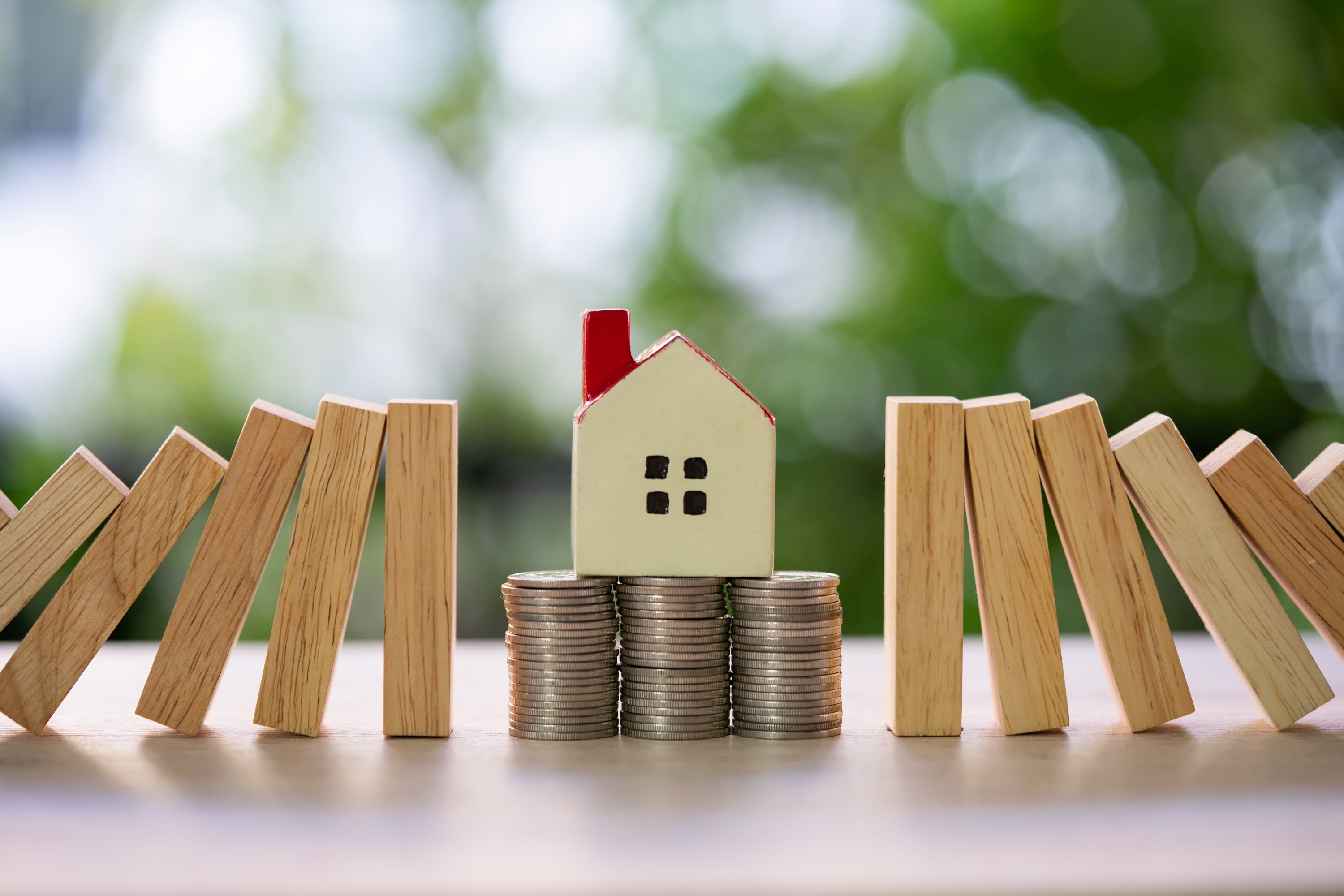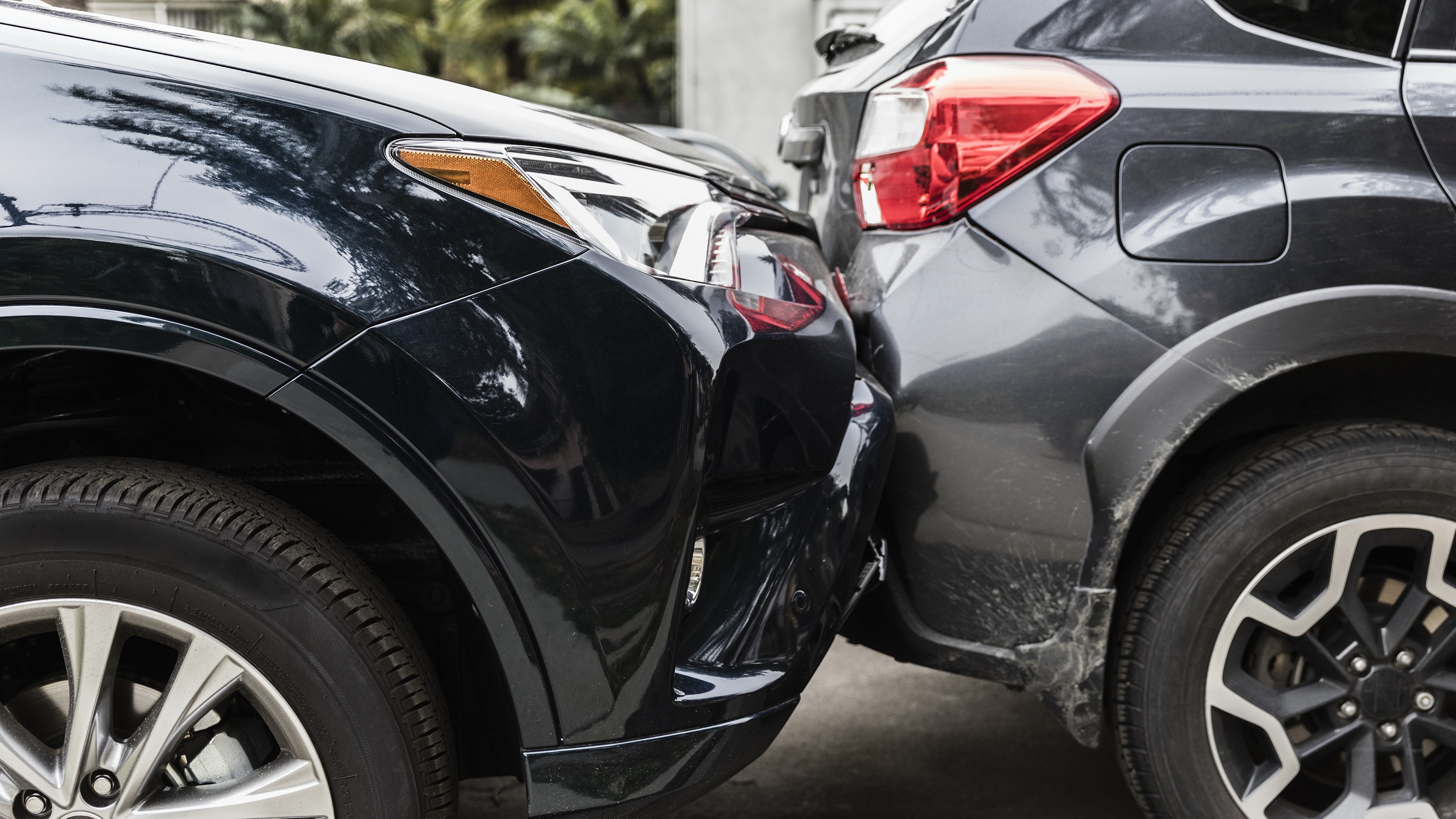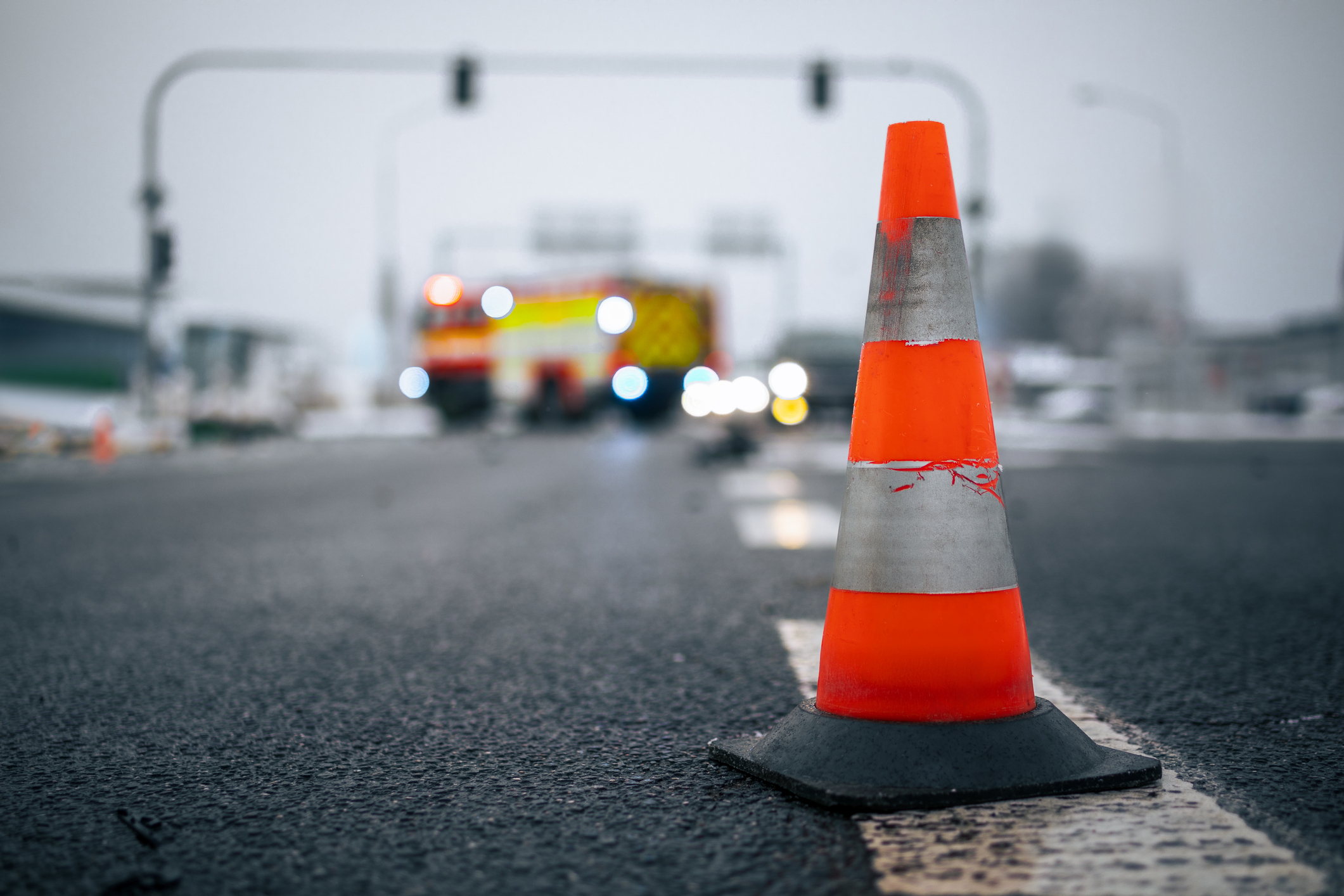Is Home Insurance Required? Not Necessarily, But That Doesn't Mean You Should Drop It
Home insurance is required by most mortgage lenders. But even if your home is paid off, does it make financial sense to drop coverage?

Seychelle Thomas

Profit and prosper with the best of Kiplinger's advice on investing, taxes, retirement, personal finance and much more. Delivered daily. Enter your email in the box and click Sign Me Up.
You are now subscribed
Your newsletter sign-up was successful
Want to add more newsletters?

Delivered daily
Kiplinger Today
Profit and prosper with the best of Kiplinger's advice on investing, taxes, retirement, personal finance and much more delivered daily. Smart money moves start here.

Sent five days a week
Kiplinger A Step Ahead
Get practical help to make better financial decisions in your everyday life, from spending to savings on top deals.

Delivered daily
Kiplinger Closing Bell
Get today's biggest financial and investing headlines delivered to your inbox every day the U.S. stock market is open.

Sent twice a week
Kiplinger Adviser Intel
Financial pros across the country share best practices and fresh tactics to preserve and grow your wealth.

Delivered weekly
Kiplinger Tax Tips
Trim your federal and state tax bills with practical tax-planning and tax-cutting strategies.

Sent twice a week
Kiplinger Retirement Tips
Your twice-a-week guide to planning and enjoying a financially secure and richly rewarding retirement

Sent bimonthly.
Kiplinger Adviser Angle
Insights for advisers, wealth managers and other financial professionals.

Sent twice a week
Kiplinger Investing Weekly
Your twice-a-week roundup of promising stocks, funds, companies and industries you should consider, ones you should avoid, and why.

Sent weekly for six weeks
Kiplinger Invest for Retirement
Your step-by-step six-part series on how to invest for retirement, from devising a successful strategy to exactly which investments to choose.
Forking out thousands of dollars each year for home insurance can be annoying. That's especially true if you've been claim-free for years but are still watching your home insurance costs surge year after year. So it's not surprising that more and more homeowners are asking if you really need it anyway.
The short answer is yes, if you're still paying a mortgage. But even if you don't need home insurance to keep your mortgage lender happy, it's still usually a good idea to keep it.
Here's what you need to know about the legal requirements regarding home insurance and what your finances would need to look like for you to consider canceling it.
From just $107.88 $24.99 for Kiplinger Personal Finance
Become a smarter, better informed investor. Subscribe from just $107.88 $24.99, plus get up to 4 Special Issues

Sign up for Kiplinger’s Free Newsletters
Profit and prosper with the best of expert advice on investing, taxes, retirement, personal finance and more - straight to your e-mail.
Profit and prosper with the best of expert advice - straight to your e-mail.
Is home insurance required?
There is no state with laws mandating homeowners buy home insurance. However, if you're still paying a mortgage, your lender most likely requires you to maintain coverage for the life of the loan.
Some may even require you to buy additional coverage, like flood insurance, depending on the unique risks in your area. This is your lender's way of protecting their investment against the risk of a total loss.
If you live in a condo or co-op, your board might also require you to keep paying for home insurance even if your mortgage is paid off. Keeping each individual home insured helps protect the entire complex in the event of a disaster.
You can see how your home insurance compares to others using the tool below, powered by Bankrate:
With that said, if your home is paid off and you're not living in a shared complex of any kind, you aren't legally required to keep paying for home insurance. But if you're considering dropping it to save a few thousand per year in premiums, it's important to consider the decision carefully.
Can you afford to cancel your home insurance?
If you've paid off your mortgage or you're a few years away from doing so, you might be wondering whether it's worth canceling home insurance altogether and just paying for damages yourself.
For the majority of homeowners, the math simply does not add up. But if you're curious about what it would take, here are some numbers to help figure out whether you're in a financial position to stop paying for home insurance.
As a rough starting point, you should have 200% of your home's current value set aside in savings if you want to self-insure your home. This is about how much home insurance would pay out in a total loss, according to the Insurance Information Institute.
It's important to note that this lump sum of cash should be separate from any retirement savings, emergency fund or other money. Otherwise, a total loss could end up derailing your other financial goals. You should also consider how easy it would be for you to save that sum up again if disaster strikes and you're forced to spend it on rebuilding or relocating.

Even if you could set that much money aside, the amount you'd save by dropping home insurance might not be worth it.
The national average cost of home insurance is $2,408 per year for $300,000 in dwelling coverage, according to Bankrate. At that rate, you'd need to skip paying for home insurance for well over 100 years to save the $300,000 you'd have gotten in return. Even after factoring in the annual rate hikes, you're still probably looking at decades before the savings make it worthwhile – and that's assuming you never experience any claim-worthy damage to your home over those decades.
In the meantime, you're locking up hundreds of thousands of dollars of your money in a savings account in case of emergency rather than putting it toward something more worthwhile. If you kept paying for home insurance, for example, you could throw that cash into an investment portfolio or a jumbo CD where it could be earning interest for you.
Even if your retirement is fully funded and you don't need that cash to work for you, it might be better to enjoy your generous nest egg rather than stashing it away for the sake of saving a couple of thousand dollars per year.
Instead of canceling it altogether, consider switching home insurance or adjusting your coverage to cut your home insurance costs without exposing yourself to too much risk.
Canceling your home insurance probably isn't worth it
If there's no mortgage lender or condo board demanding you keep paying those premiums, you technically don't need home insurance. But the amount of cash you would have to set aside to protect your home from disaster if you canceled your insurance is probably better spent elsewhere.
That's even more true when you consider how many years of saved premiums it would take to even make up the coverage limit in your policy.
Instead of self-insuring, consider other options like boosting your deductible or excluding certain perils, like opting out of earthquake insurance or other extra coverage. Moves like this can lead to substantial savings on home insurance without leaving you completely exposed to every risk your home faces.
Get more insurance tips and other personal finance insights straight to your inbox. Subscribe to our daily newsletter, A Step Ahead.
Related Content
Profit and prosper with the best of Kiplinger's advice on investing, taxes, retirement, personal finance and much more. Delivered daily. Enter your email in the box and click Sign Me Up.

Rachael Green is a personal finance eCommerce writer specializing in insurance, travel, and credit cards. Before joining Kiplinger in 2025, she wrote blogs and whitepapers for financial advisors and reported on everything from the latest business news and investing trends to the best shopping deals. Her bylines have appeared in Benzinga, CBS News, Travel + Leisure, Bustle, and numerous other publications. A former digital nomad, Rachael lived in Lund, Vienna, and New York before settling down in Atlanta. She’s eager to share her tips for finding the best travel deals and navigating the logistics of managing money while living abroad. When she’s not researching the latest insurance trends or sharing the best credit card reward hacks, Rachael can be found traveling or working in her garden.
- Seychelle ThomasContributing Writer
-
 Quiz: Do You Know How to Avoid the "Medigap Trap?"
Quiz: Do You Know How to Avoid the "Medigap Trap?"Quiz Test your basic knowledge of the "Medigap Trap" in our quick quiz.
-
 5 Top Tax-Efficient Mutual Funds for Smarter Investing
5 Top Tax-Efficient Mutual Funds for Smarter InvestingMutual funds are many things, but "tax-friendly" usually isn't one of them. These are the exceptions.
-
 AI Sparks Existential Crisis for Software Stocks
AI Sparks Existential Crisis for Software StocksThe Kiplinger Letter Fears that SaaS subscription software could be rendered obsolete by artificial intelligence make investors jittery.
-
 4 At-Fault States With No-Fault Insurance Rules You Should Know
4 At-Fault States With No-Fault Insurance Rules You Should KnowThink you live in an at-fault car insurance state? These four still have some tricky no-fault insurance laws you should know about.
-
 Is There a Downside to Switching Your Insurance Frequently?
Is There a Downside to Switching Your Insurance Frequently?You keep finding lower rates every time you shop for insurance. Is there any reason not to take the better deal?
-
 No-Fault Car Insurance States and What Drivers Need to Know
No-Fault Car Insurance States and What Drivers Need to KnowA breakdown of the confusing rules around no-fault car insurance in every state where it exists.
-
 Why Your Home Insurance Might Not Protect You If Someone Else Lives There
Why Your Home Insurance Might Not Protect You If Someone Else Lives ThereLetting a relative stay in a second home or inherited property can quietly change your insurance coverage and leave you exposed to costly liability claims.
-
 The 1-Month Rule for Setting Your Car Insurance Deductible
The 1-Month Rule for Setting Your Car Insurance DeductibleThe ideal car insurance deductible balances risk and savings. Here's how to find it.
-
 How Drones Can Affect Your Insurance Coverage
How Drones Can Affect Your Insurance CoverageHow insurers are using aerial imagery to assess homes, the backlash from policyholders and how state regulators are trying to rein in the practice.
-
 Does Your Car Insurer Need to Know All Your Kids? Michigan Cases Raise Question
Does Your Car Insurer Need to Know All Your Kids? Michigan Cases Raise QuestionWho you list on your policy matters more than most drivers realize, especially when it comes to who lives in your home.
-
 Is Home Insurance Tax Deductible?
Is Home Insurance Tax Deductible?With home insurance rates on the rise, you might be hoping to at least claim the cost as a tax deduction. Here's what you need to know ahead of tax season.